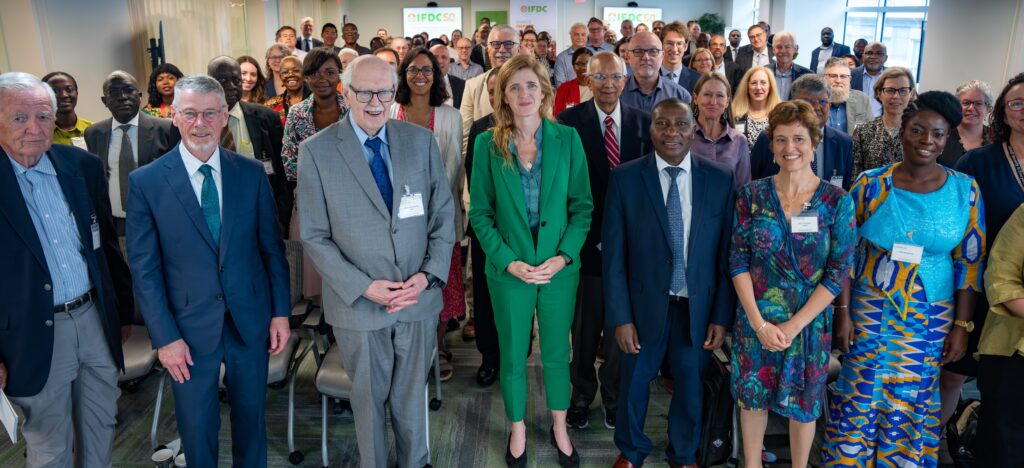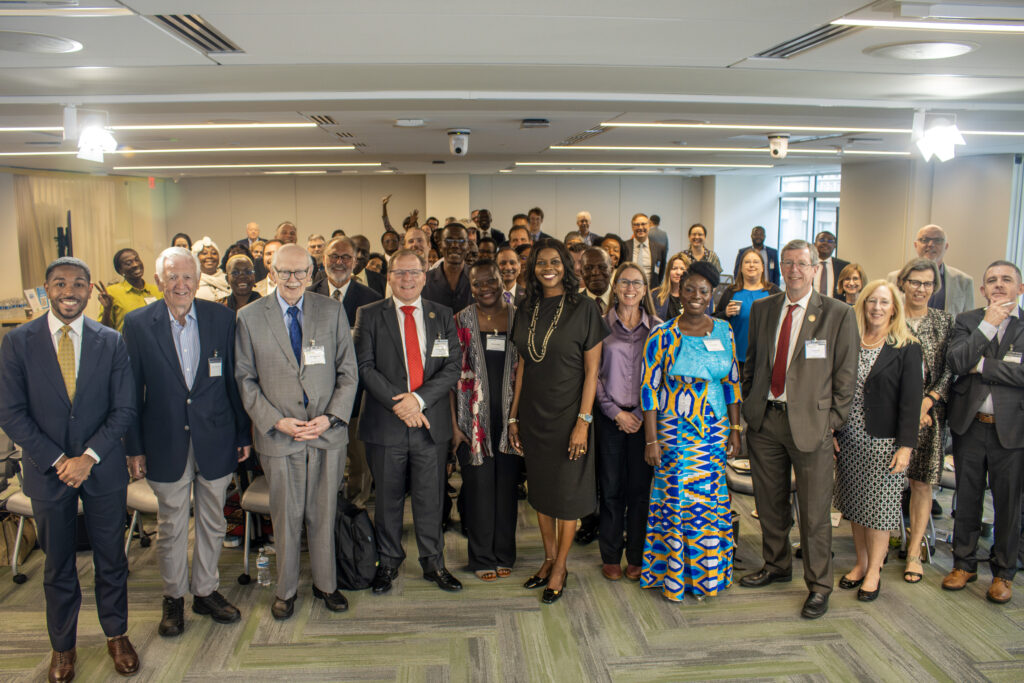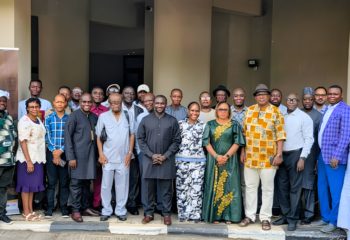
The “Future Proofing: Unified Action for Soil Health and Food Security” symposium, hosted by the International Fertilizer Development Center (IFDC) on June 4, provided an effective platform to explore and discuss strategies to advance soil health, sustainable agricultural practices, and food security around the world, especially on the African continent.
To build on the momentum from the recent Africa Fertilizer and Soil Health (AFSH) Summit in Nairobi, Kenya, the symposium brought together experts from various sectors. As IFDC commemorates 50 years of developing agriculture from the ground up, the symposium emphasized the necessity of implementing the African Union’s Africa Fertilizer and Soil Health Action Plan and regional roadmaps within the framework of the Soil Initiative for Africa.
Dr. Thomas Coon, Co-Chair of the IFDC Board of Directors, opened the symposium. He emphasized the need for collaborative action, setting the stage for the day’s discussions.
The conversations began with a Fireside Chat between United States Agency for International Development (USAID) Administrator Samantha Power and Director of the Directorate of Agriculture and Rural Development of the African Union Commission, Dr. Godfrey Bahiigwa.
During the Fireside Chat, the pair discussed critical challenges and opportunities in enhancing soil health and food security in Africa. Bahiigwa highlighted the need to adopt evidence-based agricultural practices and improve access to quality fertilizers for smallholder farmers. Power emphasized the critical significance of fertilizer and soil health in tackling global food security and climate challenges and highlighted USAID’s commitment to fostering partnerships with African nations to enhance agricultural practices and soil management.
“If people are to eat, there’s going to be a need, of course, for fertilizer to be [used] – it’s a vital part of the equation.”
Samantha Power, USAID Administrator
Power underscored the role of innovation and technology, advocating for accessible soil testing methods and the development of soil health indicators. She stressed the need to engage youth and women as pivotal contributors to agricultural advancement and called for robust policy frameworks to prioritize soil health. Concluding with a sense of urgency, Power urged stakeholders to transition from dialogue to actionable steps in implementing strategies from the AFSH Summit to combat soil degradation and ensure sustainable agricultural development.
The next panel, “Transforming Food Systems: The Answer Lies Beneath Our Feet,” provided insights and solutions for harnessing Africa’s agricultural potential. Moderated by Teresa Welsh, President of Bloom Global Communications, the conversation featured Godfrey Bahiigwa, Dr. Rattan Lal, Parmesh Shah, and Edith Wheatland. The panel emphasized the pivotal role of scientific research in shaping actionable strategies for sustainable food production. Dr. Lal commented, “Africa will be the next breadbasket of the world; it has the soils, the resources, the climate, and the people. What we need is for the policymakers to put word into action.”
The panelists stressed key points: policymakers must act on scientific findings, integrating soil health, water management, and quality seeds holistically. They also advocated for empowering farmers through education, finance, and policy involvement; making agriculture appealing to youth; and fostering international collaboration for unified agricultural agendas.
After the morning sessions, five working groups workshopped implementable solutions to solve food insecurity and climate challenges. Led by experts in the areas of Producers and Consumers, the Private Sector, Government and Enabling Environment, Research and Innovation, and the Financial Sector, the groups drew on the expertise of their members to propose actionable solutions for improving soil health and food security and reported their solutions back to the rest of the symposium.
After the breakout sessions, the Under Secretary for Research, Education, and Economics (REE), and USDA’s Chief Scientist, Dr. Chavonda Jacobs-Young, noted the urgent need to address food insecurity and climate shifts around the world through agricultural research and innovation. Highlighting the challenges posed by a growing global population and environmental threats, she emphasized that ensuring food security is crucial for national stability.

She also spoke on the gravity of improving soil health and fostering international collaboration, exemplified by initiatives like the Agriculture Innovation Mission for Climate (AIM for Climate), which aims to drive investments in climate-smart agriculture and foster global partnerships. Her speech concluded with a call to action for continued support and engagement in agricultural research to achieve a resilient and food-secure future.
During an afternoon panel, moderated by IFDC board member Dr. Leigh Ann Winowiecki, CIFOR-ICRAF Soil and Land Health Global Research Lead, and Co-Lead of the Coalition of Action for Soil Health (CA4SH), the working group leaders shared concrete outputs from the breakout sessions. Using the AFSH Summit Action Plan as a guide to elevate the critical role of soil health, the session delved into collaborative efforts across various groups to address key challenges and capitalize on opportunities.
The working group leaders concluded the session with a unified call to action, urging immediate steps toward sustainable soil practices to ensure global food security and ecosystem health.
The vision of the working groups will continue at a second IFDC symposium in the Netherlands this November to build on collaboration and progress for practitioners in soil health and food security.
After an intense day of brainstorming, conversations, and debates, Josephine Okot, Co-Chair of the IFDC Board of Directors, took the floor, sharing important takeaways, and officially calling the symposium to a close. She remarked, “We all know that the journey of a thousand miles starts with a first step, and I believe that each one of you has made that first step today.”
The D.C. symposium served as a pivotal forum for addressing the critical issues of soil health and food security and finding solutions for action. This event not only highlighted the collaborative efforts needed to secure a sustainable future but also reinforced IFDC’s and our partners’ ongoing commitment to fostering agricultural development in Africa.




